According to The National Sleep Foundation, we spend up to one-third of our lives asleep, or at least we’re supposed to spend one-third of our lives asleep. For some, it’s not so simple. Sleep is an elusive partner to be sought at night, sometimes with delayed success. But getting a good night’s sleep is important, because not getting a good night’s sleep can be detrimental to your health, attitude and productivity.
Consistent lack of sleep can put you at risk for heart disease, diabetes or stroke. One night of not being able to fall asleep can make you groggy, cranky and downright cantankerous the next day. It can also affect your cognitive ability, memory and judgment.
Although this list is intended to rectify the occasional sleepless night, and also offer strategies to fall asleep faster, the chronic insomniac might find one or two new techniques here to help you finally beat the demon that keeps you awake. Hopefully. Grab a cup of coffee, unless you’re reading this at night, and find the solution to help you fall asleep faster.
1. Force Yourself To Stay Awake
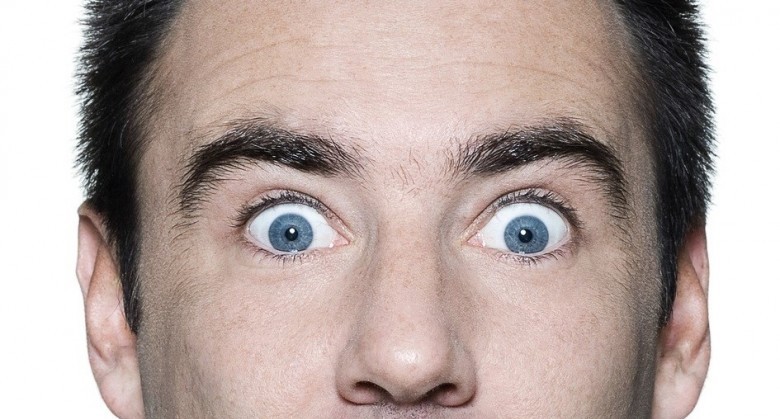
Use reverse psychology—on yourself. Researchers found that trying to stay awake is actually quite tiring. Using two groups of sleep onset insomniacs (um, people who have a hard time falling asleep), the researchers told one group to lie in bed and try to stay awake as long as possible. The other group did not get this instruction. The group that forced their eyes open actually fell asleep sooner than the other group. If you try this at home, make sure there are no other distractions like your smartphone, TV, kids playing outside your window (See #16), etc. Get comfortable in bed and then force yourself to keep your eyes open except to blink. G’night!
2. Socks To The Rescue
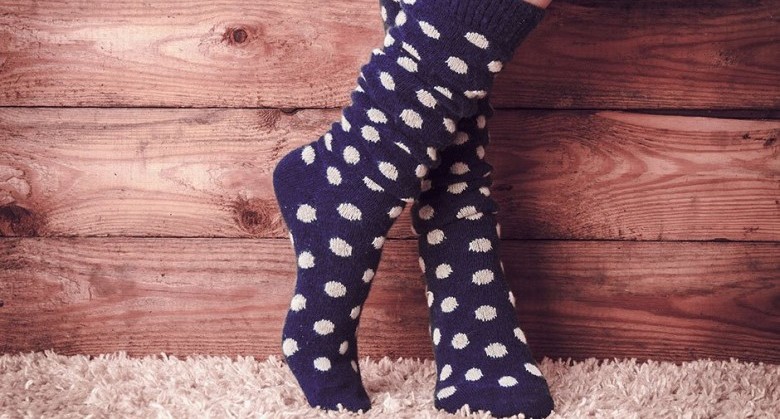
Wearing socks warms your feet. Tell me something I didn’t know, right?! But this simple knowledge might be just what you need to get over the hump separating frustration and falling asleep. Just as you are about to doze off, your body sends blood to your extremities: your hands and your feet. If they are warm, it will help redistribute your blood which can help you enter the elusive Land of Sleep. Before you get into bed, put on a pair of comfortable socks. (Or if you want to save time in the morning, throw on tomorrow’s pair!) If you absolutely, positively cannot wear socks in bed, try a hot water bottle near your feet. Bonne nuit. (Good night in French.)
3. The 4-7-8 Exercise
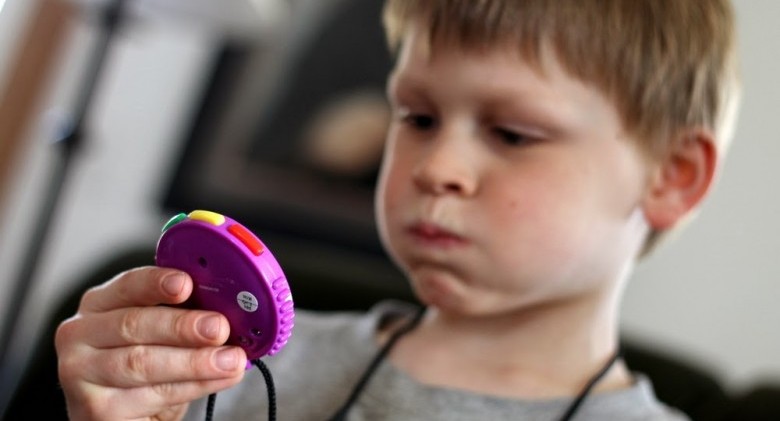
If you can focus on your breathing, everything will fall into place. Especially the ZZZs. Dr. Andrew Weil, a Harvard-trained medical doctor with a focus on holistic health, knows that breathing can influence your mood and can calm you. He says The 4-7-8 Breathing Exercise (a.k.a. The Relaxing Breath) is “a natural tranquilizer for the nervous system.” Here’s how you do it. Exhale completely through your mouth. Blow slowly, so you hear the air escaping. Then, close your mouth and inhale quietly through your nose while silently counting to four. Hold your breath for seven. (Holding your breath is the most important part.) Exhale completely and noisily again for eight seconds. Lather, rinse repeat four times. Lilah tov. (Good night in Hebrew.)
4. Dim The Lights
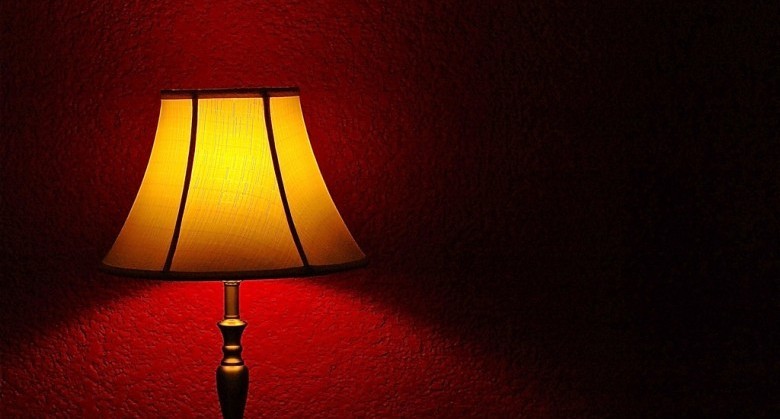
Let’s talk about the “light cycle,” our biological need for alternating periods of light and dark. Give the “light cycle” a little help at home by dimming your lights an hour or two before you turn them off. Our brains react differently to different types of light, and this can cause mental alertness or drowsiness, depending on the position of the light switch. Artificial light at night tricks your brain into thinking it’s time to be up, and it inhibits the production of melatonin. Melatonin is a hormone that helps regulate your sleep and wake cycles. At night, you want melatonin. Try turning down the overhead lights as well as the lights on your screens: your computer screen, your smartphone and any other device you might use before bedtime. (See #6.). The softer ambient light might make for a softer entry into sleep. Tesbah ala kheer. (Good night in Arabic.)
5. Carefully Choose Your Light’s Color

The color of the light matters too, because where it falls on the light spectrum influences the production of melatonin. Light enters the eye and travels to the brain. The color of the light determines the reaction in the brain. The right color will help the production of melatonin and lead to drowsiness. For instance, blue is the color that keeps us awake. (What color does a TV flicker in a dark room? Blue. How about your cell phone’s light? Blue.) Blues keep us up. Counter-intuitively, colors in the yellow-orange range (read: sunset!) tend to produce in our brain the need for sleep.
6. Just Say “No” To Screens

Unless you are sleeping in the office (ugh!), do you really, really, really need to be on your computer or smartphone the hour leading to bedtime? First, there’s the problem with light hues. (Remember #5?) Screens emit a blue hue, and blue tells your brain to stay awake. Next, there’s the issue of alertness. Chances are, whatever you are viewing on the screen is not relaxing your brain into sleep mode but instead stimulating it. Quite possibly the content on the screen is going to give you something to think about. That’s not what you need as you turn off the lights. One hour before bedtime, just unplug. That leads you to ask, “What can I do for an hour without TV or Internet?” Read what’s next. . .
7. Unwind For An Hour

Whether you’re a busy executive, an overworked parent, or a diligent student, you might have a hard time “turning off” the thousand items racing through your mind when you pull up the covers. Of course, you’ve already switched off the computer and said, “No” to TV. Now what? You can make the pre-bedtime hour productive—and relaxing. Here are some suggestions. Prepare tomorrow’s lunches and outfits. Read. Isn’t there a classic you’ve always wanted to read? (Not Frankenstein before bed!) You can talk with your spouse or roommate. You can take a hot shower or bath. Maybe you can start a journal and write your thoughts from the day. The hour of unwinding will go by quickly, and hopefully it will help you fall asleep quickly. Shubha Ratri. (Good night in Hindi.)
8. Only Get In Bed When You Are Sleepy

Climbing into bed at your bed “time” might work for kids, but it doesn’t necessarily work for grown-ups. And hitting the sack earlier if you want to get some extra shut-eye is great, but only if you are sleepy. If you are not actually ready for sleep, you could lay in the dark or toss and turn for many unpleasant minutes. Or longer! Dr. Rafael Pelayo, a clinical professor in the division of sleep medicine at the Stanford School of Medicine, says, “Trying to go to sleep when your body wants to be awake is like swimming upstream.” If you want to fall asleep quickly, wait until your eyelids are telling you it’s time for bed. Not the clock on the wall.
9. Hit The Shower

Or bath tub. And make sure it’s hot. You can use this time to clean yourself, but the most important part of the hot bath or shower is when you turn off the water and step out. So says Dr. Janet Kennedy, Ph.D., clinical psychologist, and author of The Good Sleeper: The Essential Guide to Sleep for Your Baby (and You). She’s also the founder of NYC Sleep Doctor, a resource designed to help people with sleep disorders sleep better. When you step out of a hot shower or bath, your body temperature drops, your heart rate slows and your metabolic processes slow down. All of these can lead to a drowsy feeling. Quick, dry off and get in bed. Buona note. (Good night in Italian.)
10. Hide Your Clock

This could be the worst experience when not being able to fall asleep. You close your eyes, you try to get comfortable, you toss, you turn, you kick at the covers, you fluff your pillow, you stretch out, you scrunch up, you look at the ceiling, and then you do it—you look at the clock. That digital timebomb is your judge and jury, proving your precious sleep time is slipping away, putting more pressure on you to finally fall asleep! Relaxing is the key. If you need your clock or phone to wake you in the morning, put it out of reach and out of sight. Don’t let those glowing numbers psyche you out of finally falling asleep.
11. Jot It Down
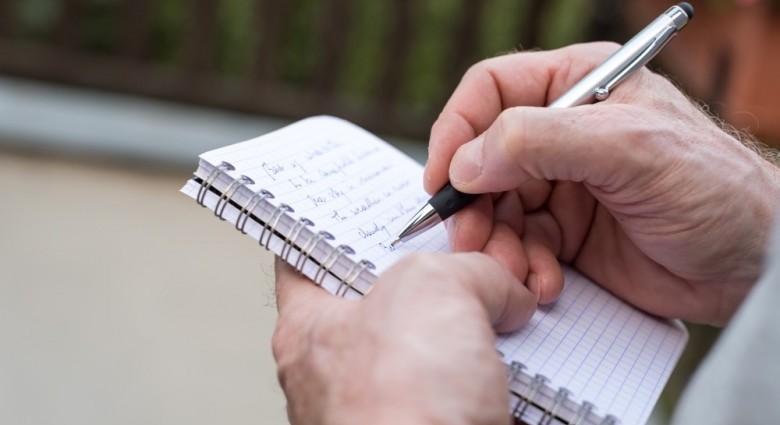
Too many thoughts are not good for sleep. If your mind is jumping from one topic to the next like rehashing the day’s events, items you need to purchase, bills you forgot to pay, people who perturbed you, homework that must get done. . . you get the idea; you’re not going to be able to fall asleep. Instead of filling your conscious with thoughts that will swirl around and grow and keep you up, simply write the thoughts on paper. This act alone can ease your mind. Avoid using your phone to “write” them because the blue light from the screen can trick your brain into thinking you should be awake. Not only that, phone in hand + not being able to sleep = checking email, Facebook, news, etc. at the expense of sleep.
12. Don’t Think About Sleep
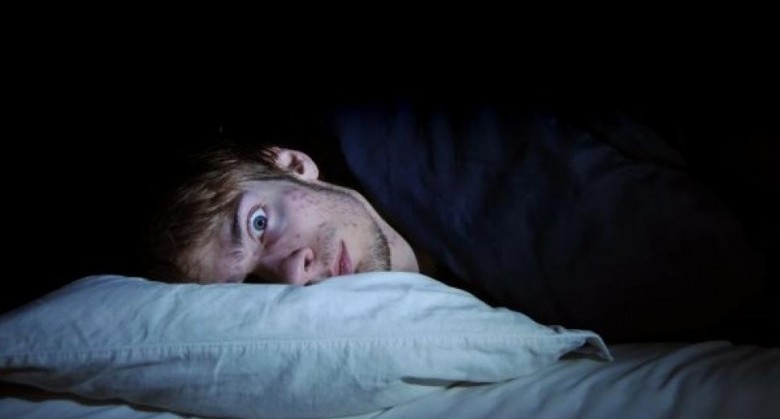
You’re in bed. The lights are off. You’re comfortable. And then the pressure hits: You must fall asleep! Ehhh (that’s a buzzer sound), wrong answer. Think about other things, or preferably one other thing, but not about sleep. It puts too much pressure on you. If you can force yourself to think about something repetitive, even better. This could be why counting sheep gets front billing in techniques for falling asleep. You don’t have to limit yourself to sheep. Imagine gardening, bouncing a ball or painting. These thoughts will help focus your mind and the repetition will hopefully help put you to sleep. Boa noite. (Good night in Portuguese.)
13. Tense, Untense

This drill will unwind your tight and knotted muscles from a day in the trenches, whatever your trenches may be. It focuses your mind from mental distractions and relaxes each part of your body. While lying in bed with the lights on or off, your choice, tense each muscle group for a silent three count and then relax them. Do each muscle three times before moving to the next. Start at the bottom with your toes and work your way up your ankles, then calves, then thighs up to your eyebrows. Or start at the top and work down. This exercise is especially helpful if you get tense when you have trouble falling asleep. Tense then relax. Spokoynoy nochi. (Good night in Russian.)
14. Find Your Happy Place
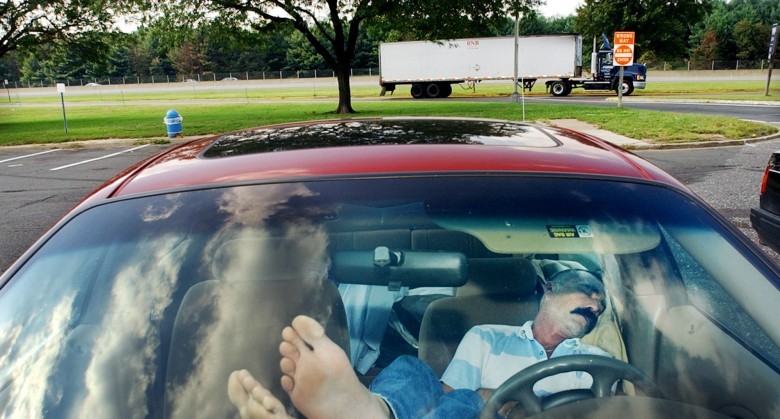
Picture a place where relaxing and falling asleep would be quite natural. Then, put yourself there. Maybe it’s a cabin porch in the mountains or overlooking a giant, peaceful lake. Maybe you’re at the beach with the waves crashing. Maybe you’re at a highway rest stop with the driver’s seat reclined. Pick and picture the place. Now here’s the trick: Sleep is in the details. Focus in on little aspects: What do you see? What do you hear? What do you smell? Spend minutes experiencing these senses before moving on to the next sense or even the next stimuli within that sense. That is, if you are sitting at a rest stop, “listen” to the cars slowly passing your car as they search for a parking spot. Pay attention to the different engine sounds. The more you focus, the faster you’ll be sleeping. Usiku mwema. (Good night in Swahili.)
15. A-B-C-D-E-F-G. . .

This may be the most fun way to fall asleep. . .at least as far as this list is concerned. This game will help your racing mind focus on a simple but challenging task. Once you’re in bed and the lights are off, close your eyes and think of a topic. This topic will be the source of a list you are going to create mentally, using the alphabet. Let’s choose Cars as the topic. Think of a car that begins with the letter A. Audi. Good. Now one that begins with B. Buick. Terrific. And so on to Z. If you reach Z, do it again, but backwards starting with Z and then Y, X, etc. If your answer could be contested, accept your answer. Eg, Harley Davidson for H. Yes, a Harley is not really a car. But it is not worth arguing with yourself late at night in bed about an answer nobody will ever hear. Accept and move on to the next letter, and to sleep. Oyasumi nasai. (Good night in Japanese.)
16. Shhhhhhhhhhhhhhh
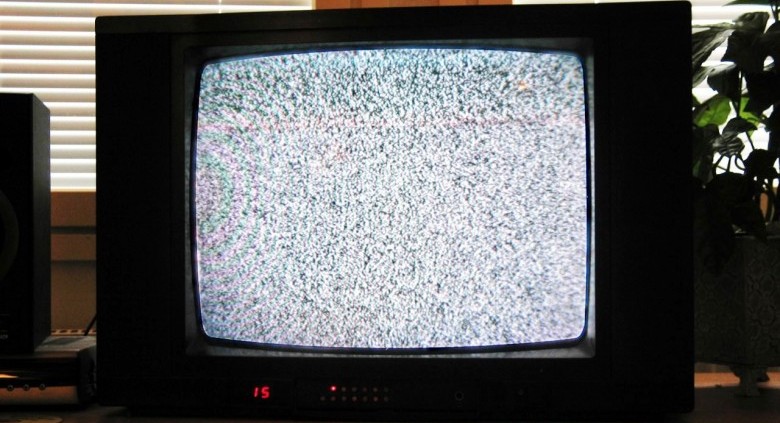
That sound that can help you drift away. It’s the sound of white noise, and it was available on analog TVs, or on a mistuned radio or a bedside sound machine. Sound machines offer various sounds including crickets, waterfalls and ocean waves to name a few. Why does sound work? Let’s look to Dr. Ralph Pascualy, the medical director of Northwest Hospital Sleep Center in Seattle, WA. He says that constant white noise “gives the brain a tonic signal that dampens its own internal systems” that crave sensory input. Simply put, constant noise, be it a whirring air conditioner, spinning fan, or misaligned radio dial, helps the brain tune out auditory stimuli so that you can fall asleep. Buenos noches. (Good night in Spanish.)
17. Get Out Of Bed
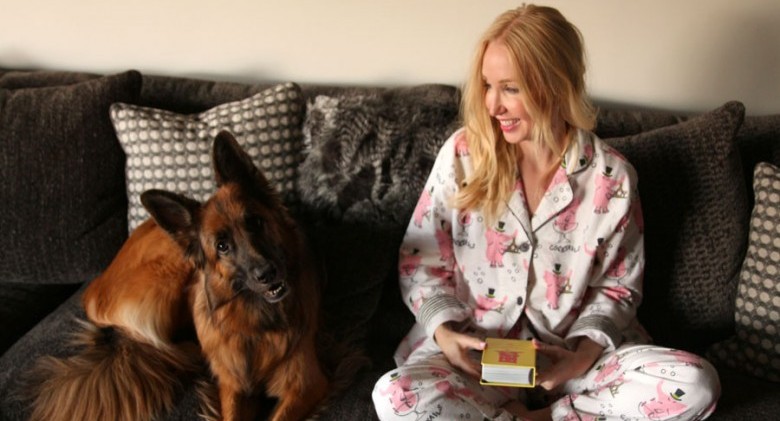
If you are getting uptight about not breaking the barrier into the beautiful world of z’s, then take a break. Get out of bed if none of the other strategies worked. Leave your bedroom and sit in another room, but don’t default to putting on the TV or checking your phone or computer. (Remember blue light can wake you up. . .even though you are already awake.) Sit somewhere comfortable and try to stay awake until you feel sleepy. Then go back to your bed. You want your brain to associate your bed with sleep, not with tossing and turning and frustration. Give yourself a break. You’ll sleep better.
[Featured image credit: www.simple-pleasures.org]
